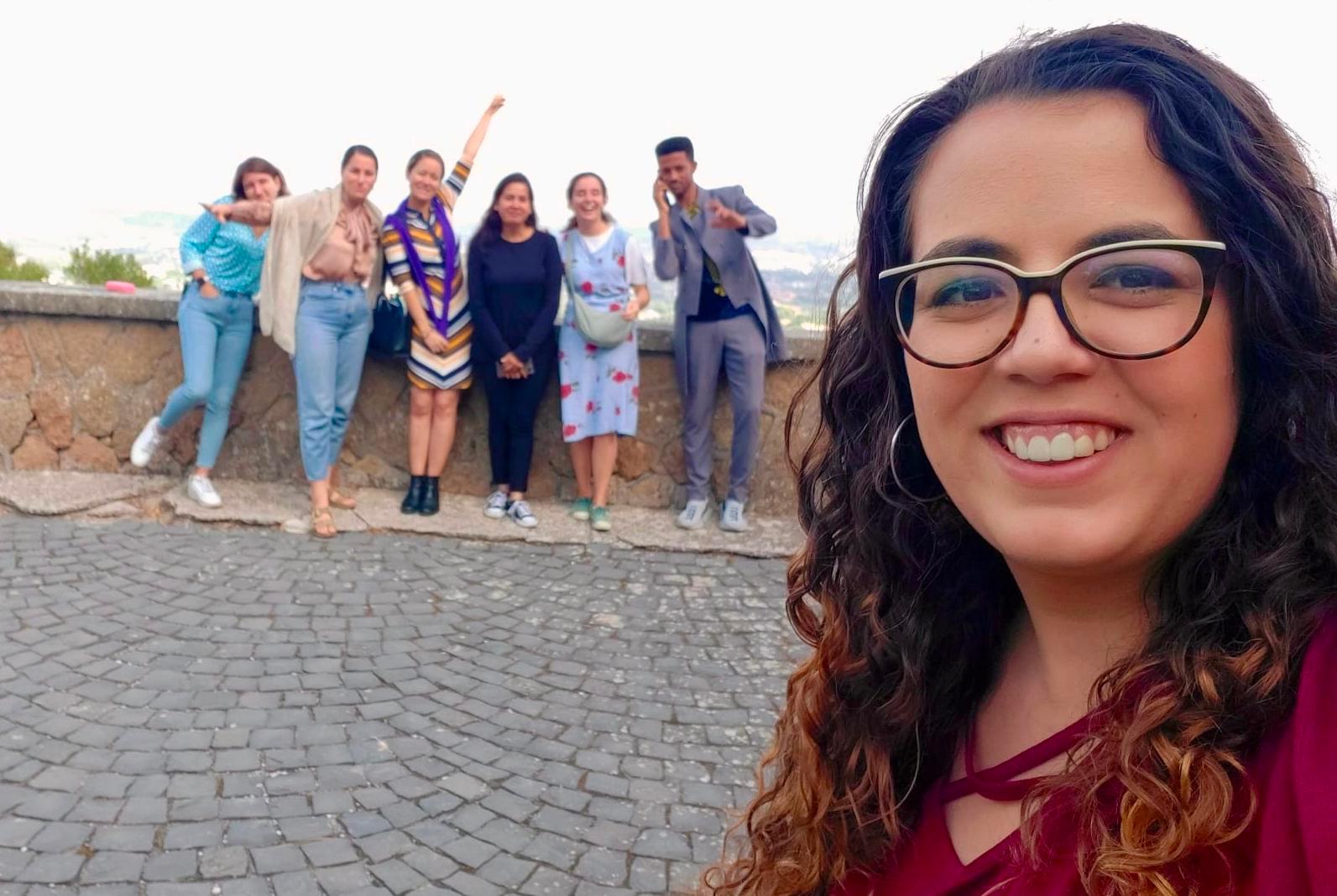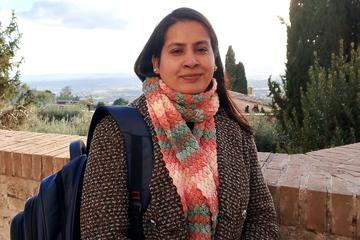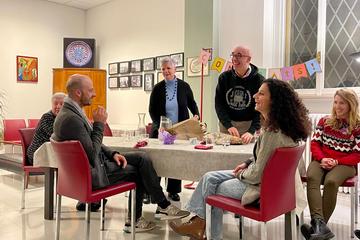
By Stefanie Bross
Yarden Millington taught fellow residents at The Lay Centre how to bless the food on Shabbat, smile through hard times, and pronounce biblical names the correct way. A first-generation Israeli, with a unique mix of English and Moroccan influences, Yarden studied at the Cardinal Bea Centre for Judaic Studies at the Pontifical Gregorian University this past semester. The Lay Centre sat with Yarden before her return to Jerusalem and asked her about her key takeaways from her four-month stay at The Lay Centre.
Q: Yarden, could you tell us a bit more about your hometown?
A: I was born in Jerusalem, but my parents lived in a “kibbutz” for some years. When I was 12, we moved to a different town called Musaf in northern Israel, near the border with Lebanon. I lived there until five years ago, when I moved back to Jerusalem for my studies.
Q: Your accent sounds British. Are your parents from England?
A: Yeah, it depends on the conversation and topic. My dad is English, so he influenced my accent. My mom is from Marrakech, Morocco, making me a first-generation Israeli with a mix of cultural influences.
Q: What did you study?
A: I have a Bachelor of Arts in history and comparative religions. I also completed most of an MBA and am now finishing my thesis for another MA in comparative religions, and I chose it almost by process of elimination. My mom insisted I should study all religions, not just one.
Q: And how did you end up in Rome?
A: After completing my exams, my thesis adviser suggested I go to Rome to write my thesis. This would not have crossed my mind, but I got to the Gregorian University. When I got into the fellowship, Frederika, the secretary of the Cardinal Bea Centre for Judaic Studies, told me about The Lay Centre. It seemed like a place where I wouldn't have to worry much and always have some company.
Q: What was your first impression of The Lay Centre?
A: People here are diverse, not just in terms of religion, and that's what I find intriguing. Everyone has different social cues, and you have to learn them from the start if you don't want to hurt anyone. I must admit, my initial thought was also, "Catholics are crazy!" The Mass and retreat were nice. Witnessing the community's commitment to their faith was very nice. Adoration for example is still a bit elusive to me, but what stood out was that no one forced me to participate. The organic nature of the experience allowed me to appreciate its beauty.
Q: How has your faith evolved during your time at The Lay Centre in Rome?
A: Surprisingly, I find myself more religious now than before, and I think I've grown closer to my family.
Q: And your experience with interfaith dialogue here?
A: It's fascinating. In Israel, interactions happen, but not necessarily in a dialogue context. Here, it's intentional. Sharing practices and rituals with people from different faiths made me realize our shared humanity. I am also very happy for my priest friend Rafael [Starnitzky]. He speaks my mother tongue and it was so nice to talk to him, because at the beginning I needed someone whom I could trust and I knew would understand me. The Lay Centre has reinforced the importance of dialogue in breaking down barriers and fostering understanding.
Q: What would you say is the key takeaway from your four-month journey at The Lay Centre?
A: Patience. It's been a journey of uncovering layers, fostering mutual respect, and building bridges of understanding. The growth in understanding diverse viewpoints and participating in meaningful practices, even if initially unfamiliar, have been great. I will undoubtedly miss the people I've met here — individuals with a deep commitment to their faith and studies. But I think I ate too much pasta. I can't eat it for half a year.
Q: Reflecting on your experience, do you have any recommendations for someone from Israel considering a similar journey?
A: It depends on the individual's level of religiosity. For secular individuals like me, this experience can be very enriching. I'm even encouraging a friend engaged in Christian-Jewish dialogue to consider coming to The Lay Centre.
Q: What's the first thing you plan to do upon returning to Israel?
A: Run to my niece and nephew!
Thank you for sharing your journey and experiences, Yarden. We will miss you. Good luck on your thesis and thank you for all the joy you brought here.


